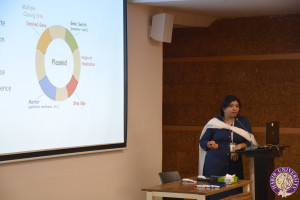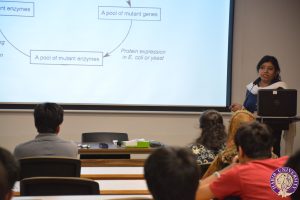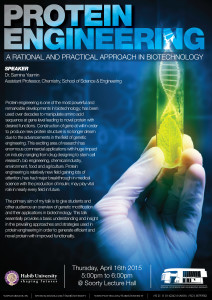By Amal Hashim (class of 2020) (Student, School of Arts Humanities and Social Sciences, Habib University) The SSE Public Lecture Series at Habib University maintains a distinguished legacy of inviting notable speakers to engage with the general-public into some thoughtful discussions … Continue reading →
Read MoreProtein engineering stands as one of the most transformative and significant advancements in biotechnology. For decades, scientists have harnessed this technology to alter amino acid sequences at the gene level, resulting in the creation of novel proteins with customized functions. The ability to design genes to produce entirely new protein structures has become a reality, thanks to the remarkable progress in genetic engineering. This dynamic field of research holds immense commercial potential, profoundly impacting various industries, including drug design, stem cell research, bioengineering, chemical manufacturing, environmental management, and the food and agriculture sectors.
Although still a relatively new discipline, protein engineering has already made groundbreaking contributions to medical science, such as the production of insulin. Its applications are expected to play an increasingly vital role in numerous fields as research continues to advance. The field’s growth has attracted considerable attention, particularly for its capacity to address complex challenges and innovate within diverse scientific domains.
During a recent talk by Dr. Samina Yasmin, students and other attendees were provided with a comprehensive overview of genetic modification and its applications in biotechnology. Dr. Yasmin’s presentation offered valuable insights into the prevailing approaches and strategies employed in protein engineering, focusing on how these methods are used to generate efficient and novel proteins with enhanced functionality. This foundational understanding is crucial for those interested in the rapidly evolving landscape of biotechnology and the potential it holds for future innovations.
In summary, protein engineering is not just a powerful tool in biotechnology; it is a field with far-reaching implications that continue to shape the future of science and industry.











